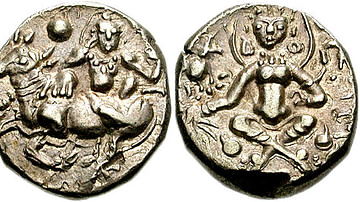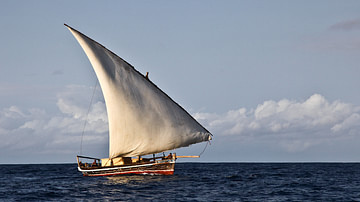Search Definitions
Browse Content (p. 156)

Definition
Old Dongola
Old Dongola (aka Dungulah or Dunkula), located in modern Sudan, was the capital of the ancient Nubian kingdom of Dongola (aka Makuria or Makurra) which flourished from the 6th to 14th century CE. A Christian kingdom for at least 750 years...

Definition
Courtly Love
Courtly Love (Amour Courtois) refers to an innovative literary genre of poetry of the High Middle Ages (1000-1300 CE) which elevated the position of women in society and established the motifs of the romance genre recognizable in the present...

Definition
Kingdom of Benin
The Kingdom of Benin, located in the southern forests of West Africa (modern Nigeria) and formed by the Edo people, flourished from the 13th to 19th century CE. The capital, also called Benin, was the hub of a trade network exclusively controlled...

Definition
Cathars
The Cathars (also known as Cathari from the Greek Katharoi for “pure ones”) were a dualist medieval religious sect of Southern France which flourished in the 12th century and challenged the authority of the Catholic Church. They were also...

Definition
Gauda Kingdom
The Gauda Kingdom came into being in the late 6th century CE in eastern India, as a result of the political disintegration of the Gupta Empire (3rd-6th century CE). Its core areas were situated in what is now the state of Bengal in India...

Definition
Swahili Coast
The Swahili Coast on the shores of East Africa was a region where Africans and Arabs mixed to create a unique identity from the 8th century called Swahili Culture. Swahili is the name of their language and means 'people of the coast.' The...

Definition
Kilwa
Kilwa, an island located off the coast of East Africa in modern-day southern Tanzania, was the most southern of the major Swahili Coast trading cities that dominated goods coming into and out of Africa from and to Arabia, Persia, and India...

Definition
Eleanor of Aquitaine
Eleanor of Aquitaine (l. c. 1122-1204 CE) was one of the most impressive and powerful figures of the High Middle Ages (1000-1300 CE) – male or female – whose influence shaped the politics, art, medieval literature, and perception of women...

Definition
Joan of Arc
Joan of Arc (Jeanne D'Arc, l. c. 1412-1431 CE) was a medieval peasant who, claiming to receive visions from God, turned the tide of the Hundred Years' War in favor of a French victory. She was famously martyrd for standing by her claim of...

Definition
Plutus (Play)
Plutus (aka Wealth) is a play written by the great Greek comedy playwright Aristophanes in 388 BCE. It was the last of his plays to be performed during his lifetime. Like his earlier play Ecclesiazusae (The Assemblywomen), Wealth was written...